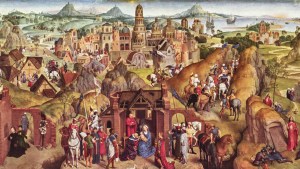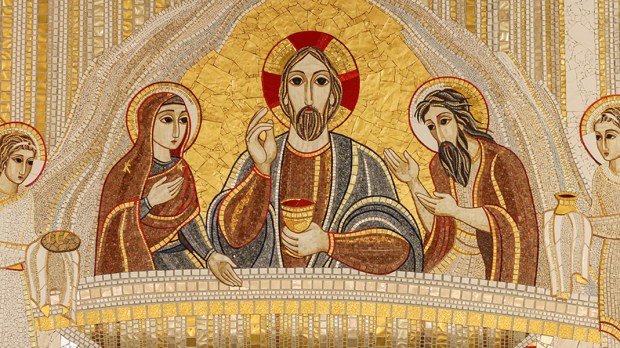One word that is often used during Advent is the Greek word parousia. It is used throughout the Greek New Testament and most often refer to the second coming of Jesus Christ at the end of time.
The word refers to an “arrival” or “presence,” and signals the day when Jesus will return in glory.
Advent has always been associated with this Christian belief as the first coming of Jesus on Christmas naturally reminds us of his second coming, for which we are to prepare ourselves.
The opening prayer for the First Sunday of Advent reflects this reality.
Grant your faithful, we pray, almighty God,
the resolve to run forth to meet your Christ with righteous deeds at his coming,
so that, gathered at his right hand,
they may be worthy to possess the heavenly Kingdom.
Through our Lord Jesus Christ, your Son,
who lives and reigns with you in the unity of the Holy Spirit,
one God, for ever and ever.
The Gospel of the First Sunday of Advent similarly invokes this need to prepare ourselves for the second coming of Jesus.
Stay awake! For you do not know on which day your Lord will come.
Matthew 24:42
Additionally, the Catechism of the Catholic Church confirms this spiritual theme of Advent, “When the Church celebrates the liturgy of Advent each year, she makes present this ancient expectancy of the Messiah, for by sharing in the long preparation for the Savior’s first coming, the faithful renew their ardent desire for his second coming” (CCC 524).
In general this focus on theparousia endures for the first half of Advent, when the Church shifts its focus from the second coming of Jesus, to a celebration of his first coming at Christmas.
When preparing yourself for Christmas, keep in mind this oft-forgotten aspect of Advent and look forward to the end of time when Jesus will come again and wipe away all tears and put a definitive end to all the suffering on this earth.

Read more:
What does the word “Advent” mean?

Read more:
4 Weeks of Advent reveal 4 comings of Christ; can you guess all four?

